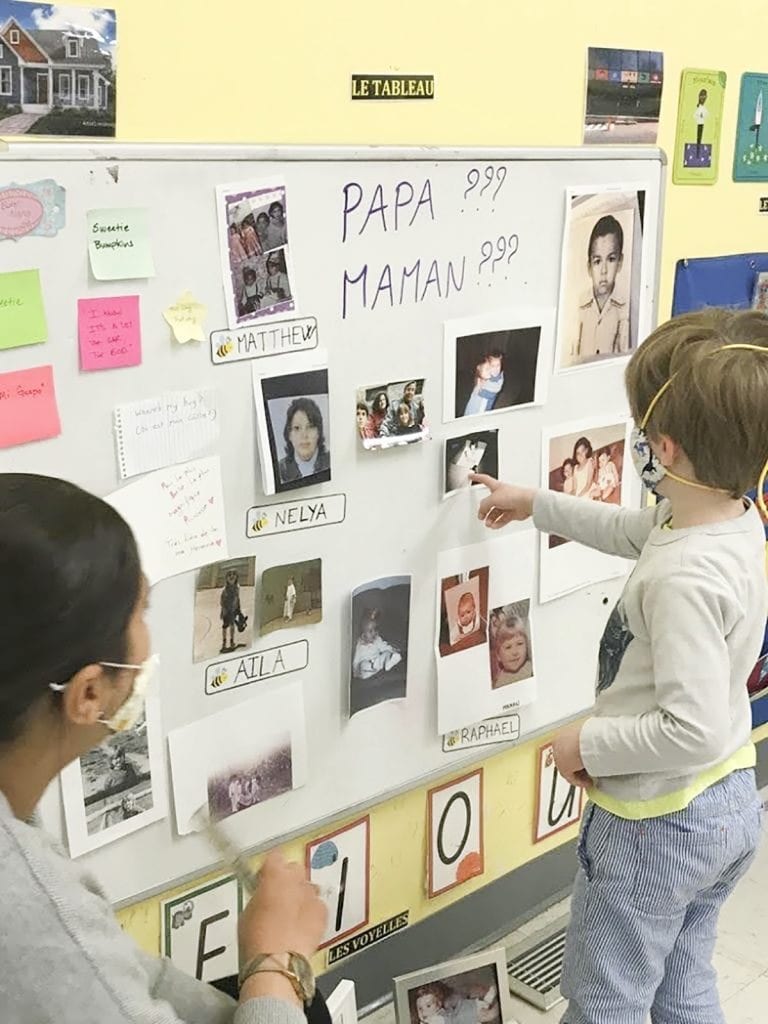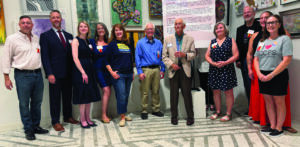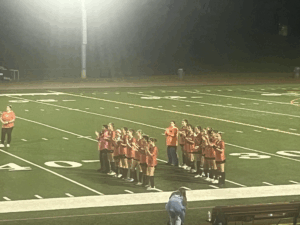
The shared hope of teachers and parents alike is that their children retain what they’ve learned long enough for it to be useful. For the students at CommuniKids, a full language immersion preschool in Falls Church, neither group of adults need to be anxious about seeing results.
“The minute my husband and I went to [CommuniKids] for school orientation, and my husband saw a girl who looked just like ours — blonde haired and blue eyed — speak Spanish, he was sold,” Laiza Casas Reidenbach, a native Spanish speaker, said of her now 10-year-old daughter.
Founded in 2003 by Raúl Echevarría and Jeannine Piacenza, the preschool was originally housed in the basement of the Wisconsin Avenue Baptist Church in Washington, D.C. There, the parents had their own children serve as the “guinea pigs,” in Echevarría’s words, to see how quickly they would pick up the language.
They didn’t have to wait long. Echevarría was speaking Spanish at home with his son back then and had his son enrolled in the nascent Spanish immersion school he co-founded, but much to his surprise, his son was starting to speak English about two weeks after classes began. Echevarría checked in with other parents to see if they had noticed anything similar in their own kids, and English-speaking parents said that their children were starting to speak Spanish.
“When the child is two and a half years old, their language is not defined. So the children are learning whatever language it is that they’re being presented to, in the same way that they would be learning their first language,” Echevarría said. “That to me, as a language teacher by trade, was really mind blowing.”
It’s a credit to the program he and Piacenza put together, which received glowing approval from parents.
Bozena Radzewicz-Bak took her son to CommuniKids after a Spanish-speaking colleague told her that children catch on to the language there better than they do in Spain. As someone who learned to speak multiple languages growing up in her native Poland, she wanted her son to get a head start on the multilingual path she began with “disastrous” grammar books at age 15.

Now a 10-year-old at the Washington International School, she told the News-Press that her son’s Spanish language skills have stayed strong. On top of speaking Polish and English at home, he took some French courses as well, allowing him to understand four languages proficiently.
French native Jean-Luc Sansfaute has a six-year-old son who recently completed the program. The purpose in enrolling his son was so he could communicate with Sansfuate’s French-speaking parents fluently. Even Sansfaute’s English-speaking spouse has started to pick up some French being around his son.
Cristina Chapman’s son graduated from CommuniKids nearly a decade ago, and has maintained a fluent grasp of the Spanish language since then. While Chapman, who is Puerto Rican-American, is glad that her son can speak to his grandparents in their natural language with ease (while also translating for his father, who only knows English, while abroad), her main motivation was for him to take pride in his culture. Understanding the language of his Puerto Rican roots opened the door to just that.
“All of this love for not only the language, but for the culture and history, started at CommuniKids,” Chapman said, and mentioned that her son did reports on countrymen such as baseball player Roberto Clemente and painter Jean-Michael Basquiat. “It’s almost like language led into a discovery of what it really is like to be a bilingual child. It colored his journey as an elementary and middle school student.”
At the heart of connecting students with a foreign language is CommuniKids’ “learning through play” model, or Early Childhood Second Language approach as its officially called. The model tasks teachers with speaking either Spanish, French or Mandarin full-time — even during recess — so children become used to pointing out certain objects or asking to go to the bathroom in the target language.
One way that children become used to the desired language is by playing dress up. Students pretend to be parents, grandparents and even babies, according to Echevarría, which takes a common game for children and makes it a brain teaser where they talk to each other while acting out their various roles. Teachers are there as well to help guide the students’ play into educational ends.
Echevarría also said that having the students do science experiments is a beneficial exercise. Not only do the kids expand their vocabulary, but they learn about the world around them. For example, Echevarría said that teachers will have the children address an object in their chosen language, and then see if it sinks or floats in water.
So, why did this exceptional preschool branch out into Falls Church to begin with (its original school is still in D.C.)? The answer may be one you already deduced just from getting to know your neighbors.
“As we started looking for a location, we definitely gravitated towards the city of Falls Church because of the commitment to education and a lot of young families,” co-founder Piacenza said. She used to be a teacher at George Mason High School. “All of the Falls Church City schools have a common language program that goes from kindergarten through the IB program in high school. So we were really attracted to the Falls Church community.”
In case you needed a reminder of how ingrained CommuniKids’ lessons are in its former students, look no further than Casas Reidenbach’s daughter.
While she’s now at a Montessori school, she managed to teach her classmates how to speak Spanish.
Casas Reidenbach said that her daughter could’ve never had done that if she learned the language at home. To her, it was because of the fundamentals she learned at CommuniKids and its (accomplished) mission of making students into global citizens that prepared her for that role.












